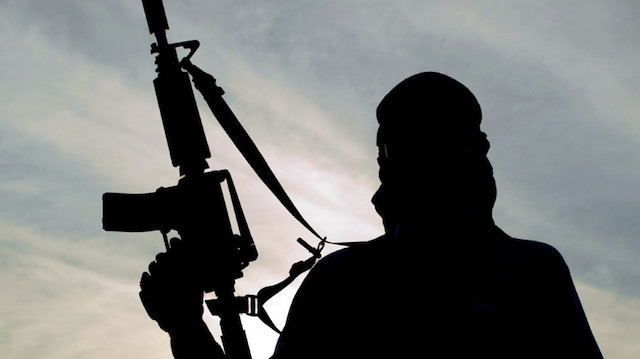
Political instability, security gap in country also pave way for terror group to strengthen its operational capability
The Daesh/ISIS terror group has increased its attacks in Iraq, especially in rural areas, amid political instability and security weakness in the country as well as the US-led coalition forces' withdrawal due to the coronavirus outbreak.
Daesh has been trying to strengthen its operational capability in rural areas since mass protests against Iraqi government erupted in October in the capital Baghdad and southern provinces.
Iraq has been roiled by mass protests since early October over poor living conditions and corruption, forcing Prime Minister Adil Abdul-Mahdi to resign.
At least 496 Iraqis have been killed and 17,000 have been injured since the protests began on Oct. 1, according to Iraq's High Commission for Human Rights.
Adil Abdul-Mahdi’s resignation on Dec. 1, the subsequent government crisis and divisions among Iraqi political parties have paved the way for the terror group to expand their activities across the country.
Iranian-backed Iraqi Shia militias' attacks on US bases, and January’s US assassination in Baghdad of Qassem Soleimani, commander of the Iranian Revolutionary Guards Quds Army; and Abu Mahdi al-Muhandis, deputy head of the Hashd al-Shaabi Delegation, also created new spaces for the terror group to gain strength.
The curfew imposed across Iraq due to COVID-19, the US-led international coalition forces' suspension of their activities in the region for two months, and the US withdrawal from six military bases in Iraq have also enabled Daesh to increase its mobility and capability for conducting terrorist attacks.
The Health Ministry in Iraq said Wednesday that the death toll from COVID-19 increased to 102. A total of 2,480 cases were confirmed while 1,602 people recovered from the virus.
Daesh/ISIS operates in areas having security gaps after coalition forces halted their logistics and intelligence support to the Iraqi government, Adnan Nime, a retired soldier and security expert, told Anadolu Agency.
The lack of solidarity between the central government and Iraq's Kurdish Regional Government (KRG) and the subsequent security gap also created a suitable space for the organization.
“The organization is not strong enough to engage in serious combats anymore and also fails to recruit militants due to insufficient financial resources and social exclusion,” said Tahsin Khafaji, a spokesperson for Iraq's Defense Ministry.
Daesh/ISIS terrorist group aims to improve the morale of its operatives by increasing its terrorist attacks, Khafaji stressed.
A total of 170 civilians and security officials have lost their lives in the first four months of 2020 due to Daesh attacks and other acts of violence, Iraqi Defense Ministry said in an April statement.
Recently, the number of attacks on security forces in Kirkuk, Mosul, Anbar, Salahuddin and Diyala provinces have increased considerably.
In late 2017, officials in Baghdad declared that the military presence of Daesh/ISIS in Iraq had been all but destroyed.
But the terrorists still have a presence in the rural areas of Anbar, Diyala, Kirkuk, Saladin and Mosul. The Iraqi army continues to carry out frequent operations against the group in these parts of the country.
Hello, the comments you share on our site are a valuable resource for other users. Please respect other users and different opinions. Do not use rude, offensive, derogatory, or discriminatory language.
The floor is all yours.








